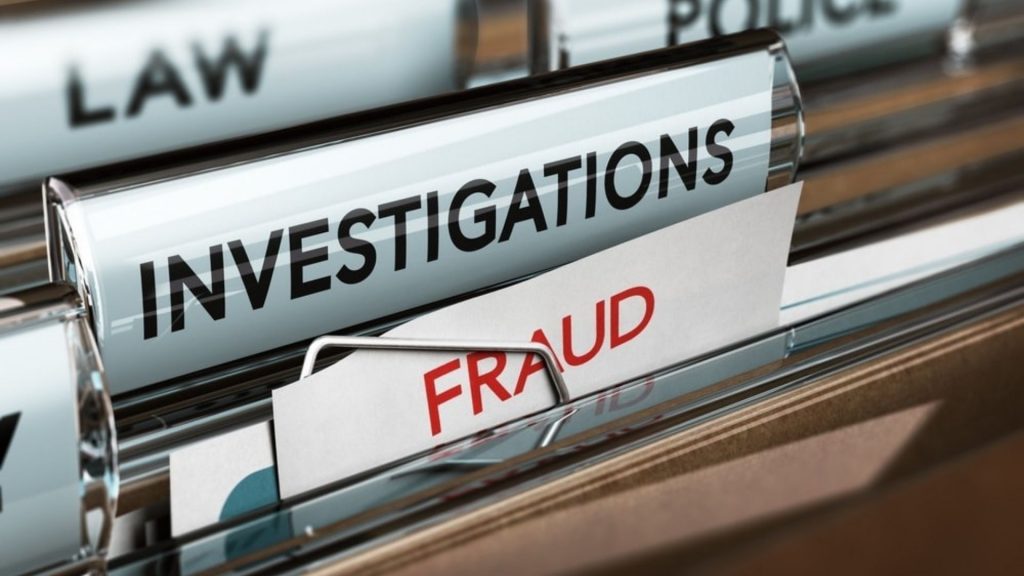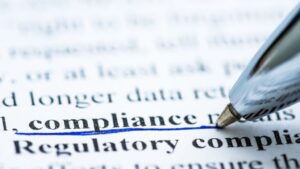There are several types of internal investigation. These include: undercover investigation, research investigation, financial investigation, electronic investigation, and corruption investigation. An undercover investigation involves an investigator within the organization. This way, the investigator can inquire about the staff wrongdoing, such as substance abuse, or harassment. The investigator will often use covert scrutiny as an integral part of the inspection in progress.
Types Of Internal Investigation
Keeping a corporate investigation confidential or covert can provide many benefits; however, it can also lead to a few challenges, and, if not handled appropriately, attempts to keep the confidentiality intact can be taken as attempts to disguise the proposed offense. A carefully managed, discreet investigation can be an effective way to detect and stop employee thefts of time, product, and property. There can, however, also be repercussions, including image and PR issues, management issues, or the leaking of confidential information.
Whenever the requirement to conduct a corporate investigation arises, the first question that should be responded to is, should the investigation be overt or covert? It is important to ascertain if it’s in the organization’s best interests to quickly embrace a policy of complete transparency, or should some investigative actions be taken secretly to dodge certain challenges and increase the possibilities of efficiently gathering all required intelligence information.
Covert or Overt? In what situations a corporate investigation should be carried out covertly?
In most instances, it will be more sensible for a corporate investigation to begin confidentially. Generally, it can be difficult to determine what should be publicly disclosed until there is enough information. More than often, the aim of a corporate investigation is to determine if anything has to be disclosed at all. There may be no legal or business requirement to make the investigation public if it is limited to due diligence and insight.
Moreover, some investigative methods can be more productive when undertaken secretly. For example, if employees are oblivious of the fact that they are under investigation, they are more likely to be approached during an informal interview. Similarly, attempts to gather and store emails, files, and other data can be much more well-organized if nobody has had enough time to try to hide or obstruct them.
There are seven key considerations for carrying out a covert internal corporate investigation
Can the Investigation Be Conducted Undercover?
Before beginning the investigation, it must be evaluated if it is reasonably possible to conduct the investigation undercover. Things to consider include: how many people know about the allegations that resulted in the investigation? Are those individuals obligated to maintain confidentiality? What is the probability of publicizing the issue on social media? Is there a threat that anyone may resort to making a whistleblower complaint?
If the received information of criminal activity but need more specific details in order to stop the theft or dangerous activity, then an undercover investigation may be the best method to obtain it. This is also a good tactic to track any losses that may take place without knowing who is involved or if there are violations of company policy.
If attempts to keep the investigation undercover have little chance of succeeding, a secret investigation may not be appropriate because it could result in counteraction, and the attempt to conduct the investigation covertly could be considered a failed attempt to conceal the accusations that prompted the investigation.
What strategies can be adopted to maintain confidentiality?
If a secretive investigation is being conducted, there are several points to take into consideration: what strategies should be applied to manage strict privacy for the needed period? When, where, and how will be the employee interviews be carried out? How will the meeting plans be handled to avoid inquiries about why senior management is suddenly meeting with internal or external legal counsel on a regular basis? If employees’ laptops or phones need to be examined or accessed by information technology IT experts, how will this be performed without inciting suspicion?
A detailed plan is required to avoid unwelcome complications during an undercover investigation. This plan should take into account previous experience, as well as elements of the organization’s traditions and the matter at hand. The plan should be feasible, and everyone involved in the inquiry should be aware of their role in accepting the confidentiality requirements.
How Long Can Cover Be Maintained?
The eventual publicity of the covert investigation is inevitable, and cover can only last for a short period. All decisions regarding how the investigation will be conducted should be reached with the understanding that the accusations that led to the investigation will eventually become public.
For example, if several workers must be interviewed, and if the interviews would be more beneficial if they are unaware of the current accusations, then such interviews should be given importance. Similarly, in case there is a risk that records will be deleted or endangered once the investigation is made public, then attempts to preserve these records should be given importance while the investigation is confidential.
What Documentation is important to avert the effects of future problems?
It is difficult to manage employee relations, public relations, and potentially legal challenges in a secret investigation. Therefore, accurately documenting all the features of the investigation is integral in managing these challenges, beginning with the purpose behind the decision to conduct the investigation secretly, to the information exposed and the conclusions drawn from there.
Who Should Be Part of the Investigation Team?
Where the investigation is being conducted secretly, it is necessary to be vigilant when establishing the investigation team. Information relating to the accusations must only be shared solely on a need-to-know basis.
Generally, a secret internal corporate investigation team will consist of the organization’s outside legal counsel, in-house lawyers, and high cadre representatives of the organization’s executive management. Certain lower cadre specialists, such as IT specialists, may also be involved. All such individuals should be interrogated before being made a part of the investigative team, and in case of necessity, confidentiality clauses should be put on their contracts as an addendum.
Is Voluntary Notification or Disclosure Required?
Another important component to contemplate is whether any type of voluntary notification or revelation is required. For example, in case of a data security violation that includes consumer information, all concerned consumers may be obligated to provide notification. This could also be the case even if the violation has not been decisively committed. Similarly, organizations in some sectors have statutory self-reporting needs. In this case, it might also be mandatory to self-report a possible matter.
An organization should be very insightful when challenged with the optional disclosure/notification and self-reporting obligations at the statutory level. While ascertaining compliance with disclosure needs, it is essential not to unnecessarily uncover any hint that might lead to legal issues or reputational harm. Self-reporting should also be accompanied by an agreement of confidentiality. Nevertheless, making the same requests with a tactical and a well-thought outlook is a task that should be managed by experienced people, whether inside or outside counsel.
When (If Ever) Will the Investigation Be Made Overt?
Finally, while concluding to keep an investigation covert, it is essential to agree on a timeline when the investigation should be disclosed to the employees, the government, or the public. This determination does not need to be decided straight away, and it may not always be realistic to do so.
If the issues or accusations that caused the investigation prove to be accurate and rational, then some sort of corrective activity will become mandatory. Even if this means uncovering the investigation, it will be dependent on the definite factual aspects and the legal matters that are involved. As with all features of the investigation, informed decisions should be concluded that are grounded from the recommendation of the legal counsel, and the services of the legal counsel have to be used to assist with the preparation, execution, and conducting remedial actions.
Research Investigation
Investigators are often used to research information about business partners or potential companies being eyed for acquisitions, mergers, joint ventures, venture capital, private equity, and investments. Furthermore, they can also carry out comprehensive employee background checks.
One purpose of good corporate research is to reach an objective assessment of the organization’s future, the competitive environment in which it operates, and a detailed study of its future earnings.
This should not be confused with financial advice. Corporate research is one of the many sources of information and opinion that investors consider while making investment decisions.
The advice or recommendation should be per the financial, tax, and specific circumstances and goals of the investor.
Good corporate research is designed to express the analysts’ point of view and their predictions for the future of the organization. As for the estimates of the value of a specific organization, good corporate research shows how the company may understand the standard analysis tools taking into consideration normal investors.
It should always be kept in mind that these are mere opinions. There is no guarantee that the estimates will be dependable.
Good corporate research results in reaching an unbiased assessment of the organization, the industry it functions in, and the competitive placement in the market, as well as an independent estimate of the organization’s plausible earnings, and an opinion on how the markets have traditionally valued similar organizations.
However, corporate research does not suggest whether to buy or sell stock or furnish financial recommendations.
How To Maintain Objectivity?
Detailed corporate research is usually financed by the organizations that commissioned it; however, it is always drafted on behalf of the readers. Therefore, all the analysts should follow a strict policy of independence and should not be allowed to deal in the stocks of the organization for which coverage is granted.
A Further Example Of Corporate Research
Background checks are also an example of corporate research investigation. Background investigations and reference checks are’ methods utilized by employers to acquire information about the relevant employees from sources apart from the job applicants themselves. Normally a background investigation contains the decision of whether a specific employee may not be appropriate for a vacancy because of a record of criminal history, traffic violations, poor credit history, or misstatements relating to education or employment history.
A reference check consists of reaching out to the potential employees’ former employers, managers, colleagues, and schools to prove past employment and to collect information regarding the potential employees’ education, technical skills, abilities, and behavior.
One of the prime reasons to carry out background and reference checks is to prevent mishaps or different sorts of legal issues to the employer or others. This can include harm to:
Other employees of the organization by harassment of any kind, or violence;The customers of the organization, for example, any sort of assault on business premises;The public by negligence in driving and non-compliance of traffic rules;The employer’s business through financial loss or image and reputational matters;There are many reasons to carry out a detailed search of criminal records of the potential employees. One of the many compelling reasons is negligence while hiring. An administrative criminal records search can be a major sign that can help the employer to exercise special care in the hiring process.
Financial Investigation
A financial investigation investigates embezzlement, money laundering, fraud, and other white-collar crimes.
Almost all cases of fraud, bribery, and corruption have a financial aspect in some way or the other. Detection and remediation of these forms of wrongdoings will need a strategy with distinct components that cut across specializations and territories.
Corporate thefts and accounting frauds are proper threats that can trigger federal or statutory actions and result in immediate financial and reputational loss.
Business owners, managers, and human resources departments have processes in place to check potential employees and shortlist those who appear to be qualified for the job. Nevertheless, even the best candidates can go off the track, and employees once trusted by the organization can unexpectedly have legal action taken against them to safeguard company interests.
Accounting fraud methods are becoming more complex than ever, and employees with basic knowledge of these methods can exploit their employers. The most common types of accounting fraud are:
Overstatement or understatement of assets or revenue;Overstatement or understatement debts or expenses;Fraudulent corporate loans and distributions;Fraudulent purchase orders and payments;Moving revenue and expenses between accounting periods;Misrepresenting the source or recipient of funds;Preparing false financial statements;Money laundering;Tax evasion and tax fraud;Rigging of the bid, bribe, anti-competitive deals, and other fraudulent financial practices.
Electronic Investigation
An electronic investigation involves processing information that has been stored electronically to collect necessary proof. It can also be used to restore data that has been lost.
An electronic investigation hunts down digital information to use as proof in litigation.
It is similar to computer forensic investigations, where evidence is examined and assessed with the help of a document review platform. Documents are assessed in their native file, as a PDF, or in TIFF format after conversion. The platform gives investigators the ability to explore large amounts of electronically stored information (ESI) rapidly and intelligently.
When practicing the process of electronic data discovery, all types of data are examined and assessed for litigation motives. Depending on the type of investigation, investigators may try to recover the lost files or information, track down the changes to electronic files, or discover whether any electronic files were a part of cyber-crimes.
Electronic data discovery investigations normally start when a business is concerned that something is wrong with their electronic data and engages with private investigators.
An investigator may suggest a client take immediate steps, such as collecting all related data files or turning off a specific computer system. The investigators usually visit the scene, communicate with clients or others involved, and carefully assess the computer system or the electronic files affected.
Normally, investigations focus on the contents of the hard drive on a specific computer. Investigators generate a digital copy of the hard drive and investigate additionally using the copy rather than the original, which is preserved and stored in its original condition. Depending on the circumstances, the investigator may use surveillance, computer investigation, network investigation, internet use investigation, data recovery techniques, special software, and other forms of techniques to collect evidence and settle the problem.
As the rate of cybercrime is increasing, many organizations are suffering losses of billions of dollars each year to cybercriminals and fraud. In many cases, an electronic investigation is the best method to safeguard an organization or to find evidence of misconduct that may lead to arrest or prosecution.
Signs that something is wrong with the electronic data can include: unauthorized changes in some electronic files or data, suspicious employees, computer systems that seem slower or appear to be hacked or infected with a virus, or the company mysteriously losing money with no paper trail to account for it.
Corruption Investigation
while carrying out a corruption investigation, bribery, illicit foreign exchange, corporate fraud, and industrial espionage can be exposed.
Corporate frauds can be deemed as illegal activity or deceptive means used to inflate the organization’s benefits. Risk is uncertain and unavoidable. With the increase in modern challenges in the market, the chance of being affected by various fraudsters also rises. Because corporate threats are not always apparent, it can take a long time to notice them and find a solution.
As a result of corporate theft, tangible and intangible assets can be targeted, and ways to rob corporate assets are rising every year. Corporate theft directed toward financial accounting and intellectual property can erase vast amounts of money within seconds and often necessitate immediate action to preserve chances of recovery.
Investigations that are appointed for corporate theft investigations adhere to strict confidentiality. Examples of corruption include:
Misappropriation of corporate funds;Corporate espionage;Misuse and illegitimate disclosure of classified information;Embezzlement of trade secrets and patents;Illegal and unlicensed use of trademarks and branding;Theft of software code;Embezzlement of corporate securities, intangible property, and cryptocurrency;Theft of physical property.
Final Thoughts
Every day, businesses must make difficult decisions. In the last ten years, federal law has enforcement criminal investigations have grown exponentially. One major cause of this has been the criminalization of civil or regulatory violations. As a consequence, companies face increasing risks, along with board members and senior executives.
Criminal enforcement is being used as a more effective tool by the Justice Department means to curtail corporate misconduct. It’s easy to see why: criminal prosecutions. large fines and threats against individual corporate officers and employees jail time. Furthermore, criminal cases are resolved quickly and take precedence over civil cases. cases on court calendars. Prosecutors can quickly get the attention of a corporation by executing a search warrant or serving a grand jury subpoena.


